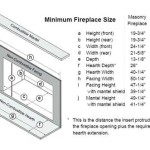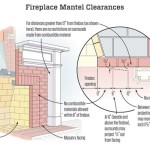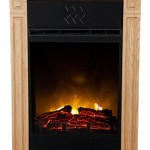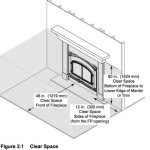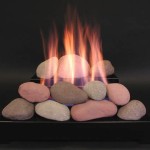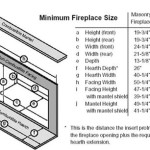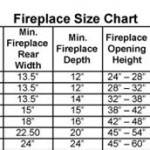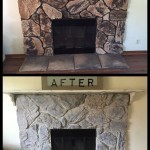What Type of Mortar for Fireplace?
When undertaking a fireplace project, choosing the right type of mortar is crucial for its structural integrity and longevity. Mortar serves as the binding agent for bricks, stones, and other masonry materials, ensuring the fireplace stays put and withstands the intense heat generated during use. Selecting the wrong type of mortar can lead to cracking, crumbling, and even safety issues. This comprehensive guide will delve into the different types of mortar available and help you choose the best option for your specific fireplace project.
Understanding Mortar Composition
Mortar is typically composed of four main ingredients: cement, sand, water, and lime. The proportions of these ingredients determine the mortar's properties, such as strength, workability, and water retention. Here’s a breakdown of each component:
- Cement: Provides strength and sets the mortar's hardness. Portland cement is the most common type used in mortar.
- Sand: Acts as a filler, contributing to the mortar's volume and improving its workability.
- Water: Activates the chemical reactions in the cement, allowing it to harden.
- Lime: Improves the mortar's workability, plasticity, and water retention. It also enhances the mortar's adhesion to masonry units.
The amount of lime used in mortar directly impacts its classification. Here's where the "type" designation comes into play.
Types of Mortar
Mortar types are represented by a numerical system called the "Type" classification, which indicates the ratio of cement to lime in the mixture. Here are the most common types used for fireplaces:
Type N
Type N mortar is a general-purpose mortar suitable for various masonry applications, including fireplaces. It has a lower lime content, making it stronger than other types. However, it can be less workable and may require more effort to apply. Type N mortar is often used for fireplaces with a low heat output, like decorative fireplaces or those primarily used for aesthetic purposes.
Type S
Type S mortar boasts the highest strength and is specifically designed for structural applications. It has the lowest lime content, making it less workable but ideal for demanding projects. Type S mortar is recommended for fireplaces with high heat output or those subject to significant structural loads.
Type M
Type M mortar offers a balance between strength and workability. It has a moderate lime content, making it a popular choice for both residential and commercial fireplaces. It provides sufficient strength while being relatively easy to apply. This type is commonly used in fireplaces with moderate heat output, such as those used for occasional heating.
Type O
Type O mortar, with its highest lime content, is the most workable type. It's designed for applications requiring flexibility and adhesion, such as brick veneer or historic restoration. Due to its lower strength, it is not recommended for fireplaces subjected to high heat or structural loads.
Choosing the Right Mortar for Your Fireplace
Selecting the appropriate mortar type for your fireplace depends on several factors, including:
Fireplace Heat Output
The heat output of your fireplace plays a significant role in choosing mortar type. High heat fireplaces, typically those used for primary heating, require a mortar with greater heat resistance and strength. Type S or Type M mortar are ideal in these cases.
Fireplace Design and Construction
The design and construction of your fireplace influence mortar selection. Brick fireplaces often require a stronger mortar than those built with stone. For example, if you're building a traditional brick fireplace, you might opt for Type M or S mortar. In contrast, a stone fireplace with lower heat output could be suitable for Type N mortar.
Existing Mortar
If your fireplace is undergoing a restoration project, you need to match the existing mortar to ensure compatibility. It is recommended to test the existing mortar to determine its type before selecting a replacement.
Importance of Mortar Selection
Choosing the right mortar is vital for your fireplace’s durability and safety. Using the wrong type could lead to various issues, including:
Cracking and Crumbling:
Inadequate mortar can crack under extreme heat, weakening the fireplace and posing safety risks.Mortar Failure:
Incorrect mortar selection can lead to mortar failure, causing the fireplace to collapse or detach from the structure.Heat Damage:
Incorrect mortar type can cause heat damage to the fireplace, potentially leading to fires or smoke inhalation.
Consulting a professional mason is highly recommended before undertaking any fireplace project. They can assess your fireplace's specific needs and recommend the most suitable mortar type, ensuring a safe and durable construction.

Mortar Wash Brick Fireplace Makeover Dimples And Tangles

Mortar Wash Brick Fireplace Makeover Dimples And Tangles

Mortar Wash Brick Fireplace Makeover Dimples And Tangles

Mortar Wash Brick Fireplace Tutorial Cottage Flip Update Jenna Sue Design

Mortar Wash Brick Fireplace Makeover Dimples And Tangles
100 Diy Fireplace Makeover Using Mortar Rebecca Genevieve

Mortar Wash Brick Fireplace Makeover Dimples And Tangles

How To Mix Fireplace Mortar Doityourself Com

Diy A German Smear Mortar Wash For Under 10

Mortar Wash Brick Fireplace Makeover Dimples And Tangles

